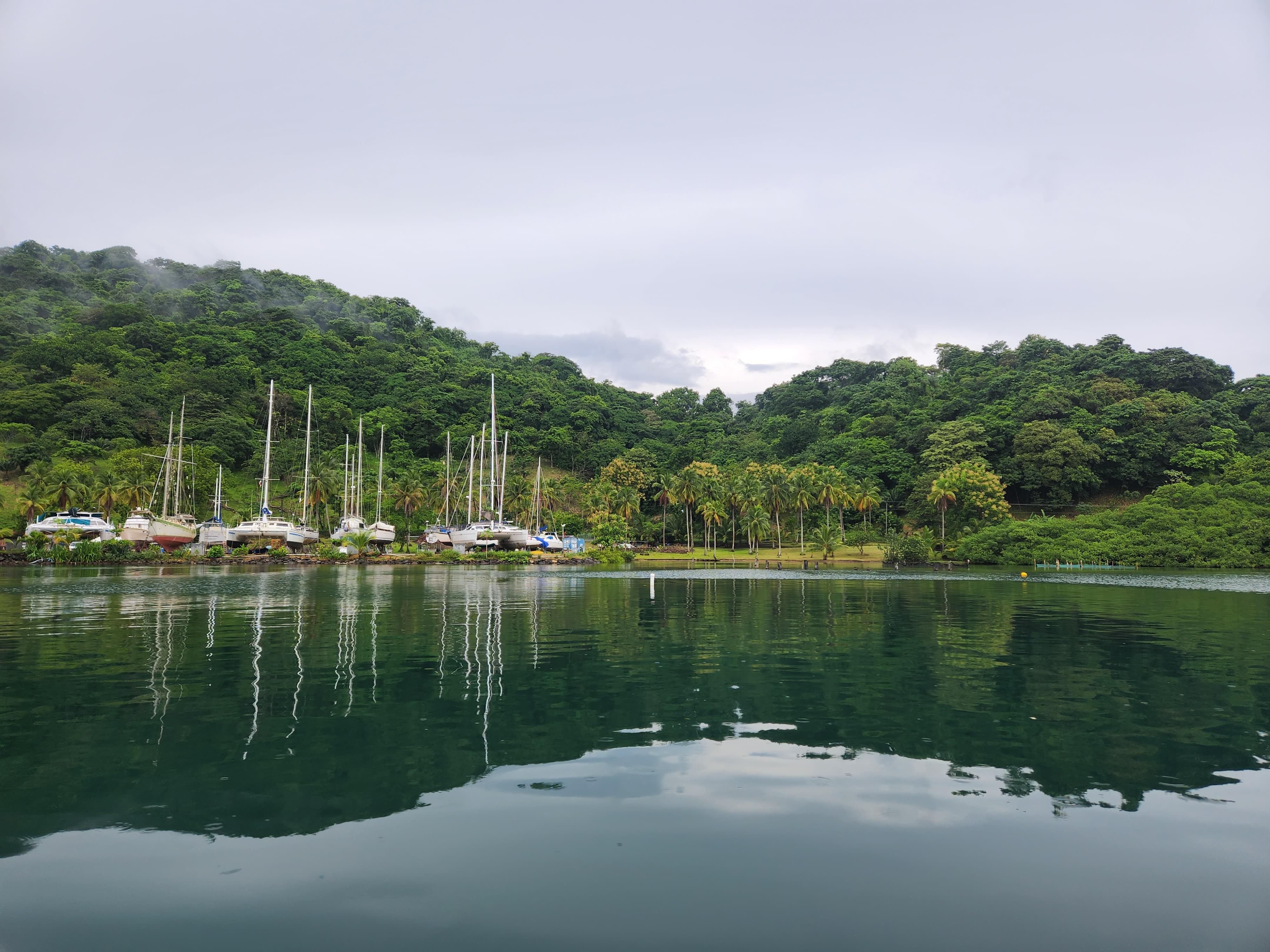Shortly after arriving to Panamarina, maybe 3 days later (that's all it took us to clean the boat, put it back into living-able shape which also involved a lot of cleaning and get seriously annoyed at the chitras, the annoying midges from the neighboring mangroves), we slowly refilled our water tanks and left for the neighboring anchorage of Puerto Lindo. It had the advantage to be free, fairly flat if you go deep enough, free of chitras and bugs and also close to the village mini-market and marina. I also had plans to interview the company Ocean Builders who is building futurist looking seapods in the marina.
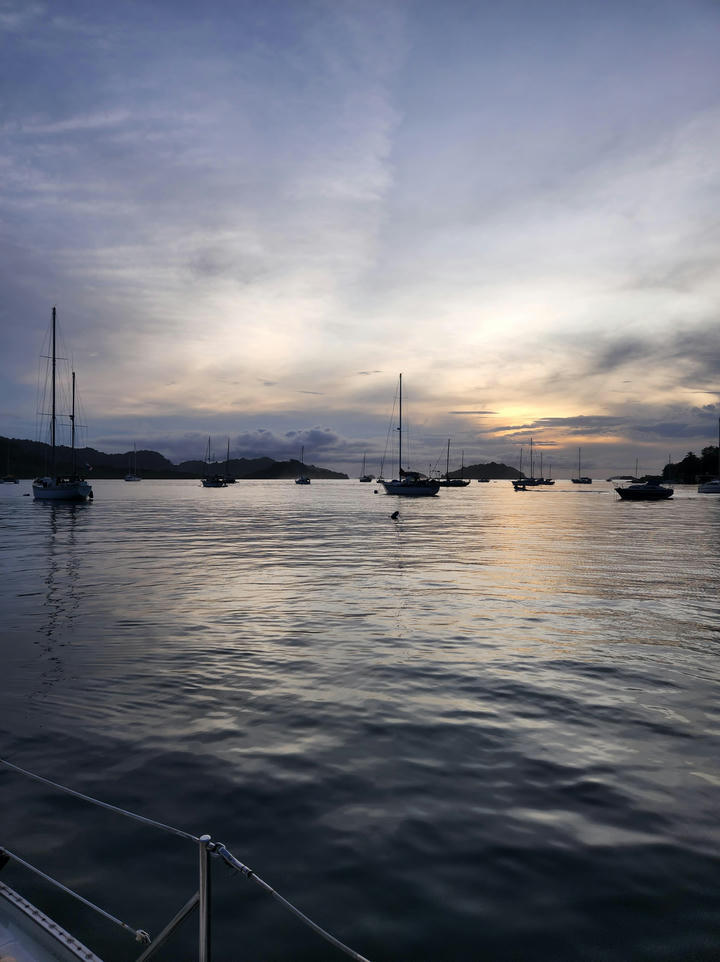
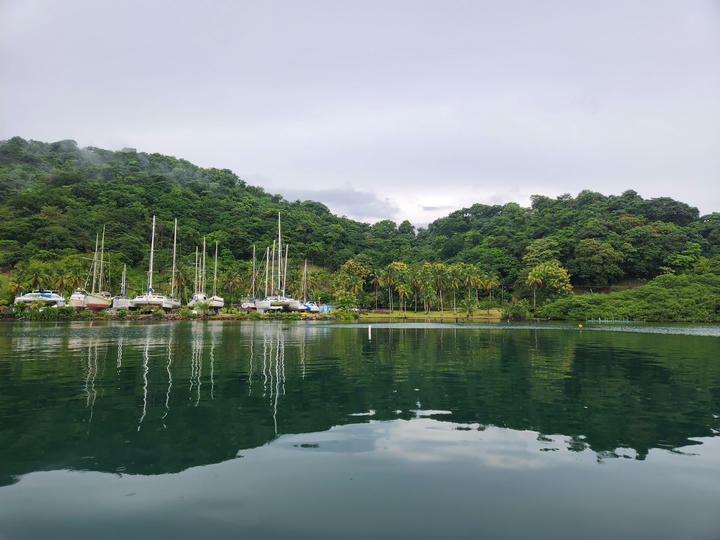
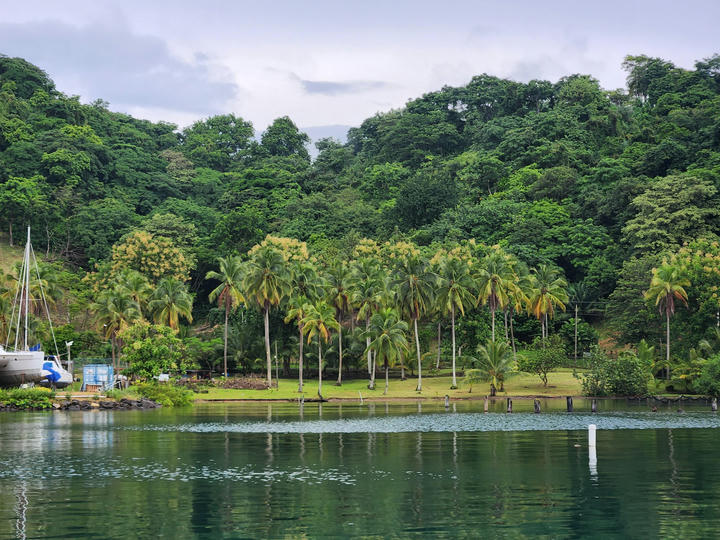
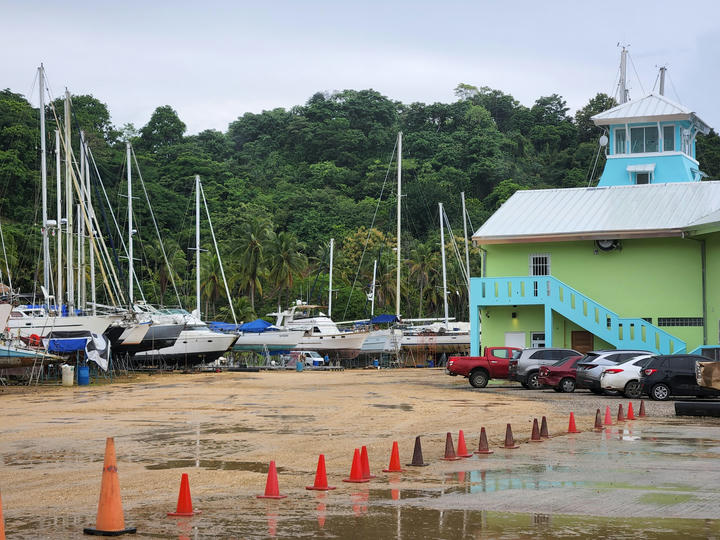
We spent another 10 days at this anchorage for interviews as I said and a pletora of little boat projects and duties that had been waiting for a while: Yalçın built a 2-panel lee-cloth to free some space in our quarter berth (it took a while but was a success as pictures attest), we reorganized our cockpit lockers, donated some equipment we didn't need anymore and was just dusting/molding and taking space, hand-sewed a bunch of little things that needed to be repaired and took advantage of the sewing machine being out and operational to repair the bimini and old clothing. We also discovered our batteries were not drained because of the absence of sun but rather because the fan of the refrigerator wasn't rotating anymore and the fridge was draining all our power. Luckily, it was quite an easy fix and a team effort. Yalçın also finally installed the new reef lines we had with us for a while, which involved the boat of us hoisting the sail at anchor a few times and getting the inviting comments of a show-off kind of cruiser who was kayaking by.
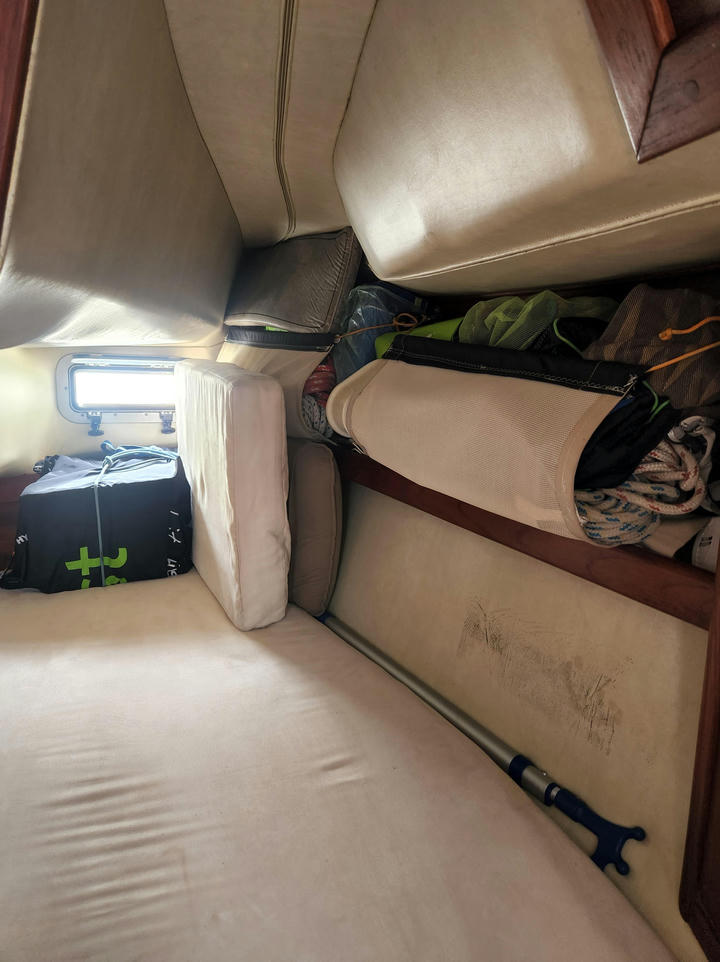
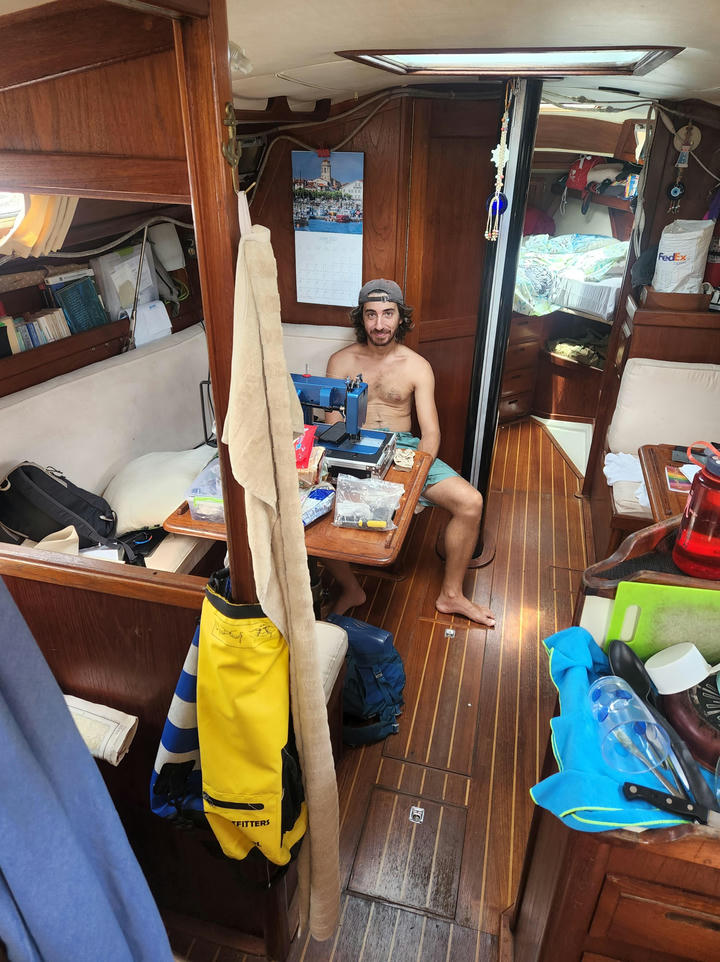
Add to the that, several rounds of errands for laundry, fuel and grocery shopping, those were a busy 10-days. The food situation was worrisome though. Due to blockages of fruit and vegetable trucks at the entrance of the country (in Chiriqui, where we were stuck for 2 months, remember?), our fruit and veggies vendor, Charlie (that we had known for several months now and was one of our favorite people around here) had very little stock and, when he had, it was quite expensive. He was giving us updates on the situation, the protests about the gas prices, which were a pretext to protest the overall corruption of the government and inequalities in the country. The shop of the village was also getting pretty empty: no onions, and overall nothing more than intermittent carrots and old looking potatoes. The cheap rice and pasta, eventually run out too, with only expensive imported brands remaining (for rice, a $9 pack for 2 kg...). We decided it was probably time to check out Panama and start being on our way to Colombia via the beautiful San Blas archipelago. We had hesitated on whether to come back for the checkout after San Blas but the food definitely encouraged us to be ready to leave if needed, not to mention that the more we stayed, the more we would take food away from the people in the village who couldn't go anywhere else.
So that's how we decided to do our check-out from Puerto Lindo, which meant getting the international departure Zarpe from the maritime port authority in the marina and get to Portobelo to get our passports stamped. Since the first step went really smoothly (we even had the appropriate document copies to complete the process in one go), we thought we could be in time to catch one of the colorful buses (Diablos Rojos as they are called) to Portobelo. It turned out that either we weren't or the bus schedule had been perturbed with the gas prices and the road blockage, and that's how the adventure begins. Since the bus didn't arrive, we walked from the marina to the village center by the shop, where we thought we could find a taxi. As we couldn't find a taxi, a bus that was going to another town offered to take us to the crossing in the road where the police station is, a little closer to Portobelo. With no taxi in sight, it looked like our best offer and when he dropped us off at the crossing we saw the actual bus that was going to Portobelo leave just a minute too early - our bus driver even tried to honk for it but it wasn't understood I guess (these buses do honk frequently for various reasons). Rain started as we got off, just to make things more dramatic. We took shelter under the roof of the police checkpoint and the friendly military officier chatted with us, not worried at all that a taxi will shortly stop by. We were a little worried about timing by then and when a taxi did show, we jumped in and even forgot to say bye to our new friend. The taxi dropped us in front of the immigration after asking several time around town. With our passport stamps in hand, the mission was accomplished, we were checked-out!
Our next mission was to visit Casa Vela, the small boater friendly café-restaurant and Francesco, his friendly and colorful owner we met a few months earlier when we arrived here with Tire-Bouchon. Sadly, he was on vacation back to his home-country of Italy. That meant no pizza for us (we had been longing for one for a little while now, after missed pizzas at the Linton Bay marina too), and had well appreciated sandwiches in a little cute coffee shop that Yalçın apparently had his eyes on for a while. We ducked in just in time to avoid the rain and lazily waited for the bus two hours later by provisioning the rest of the things we needed before leaving, or at least what we could find.
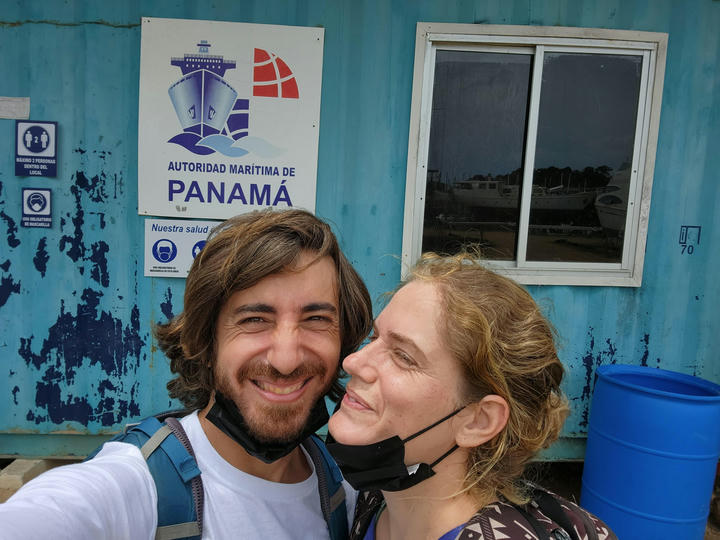
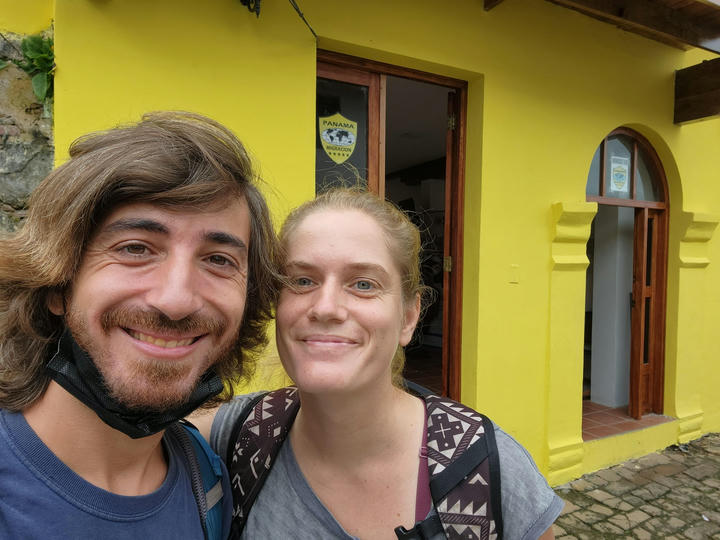
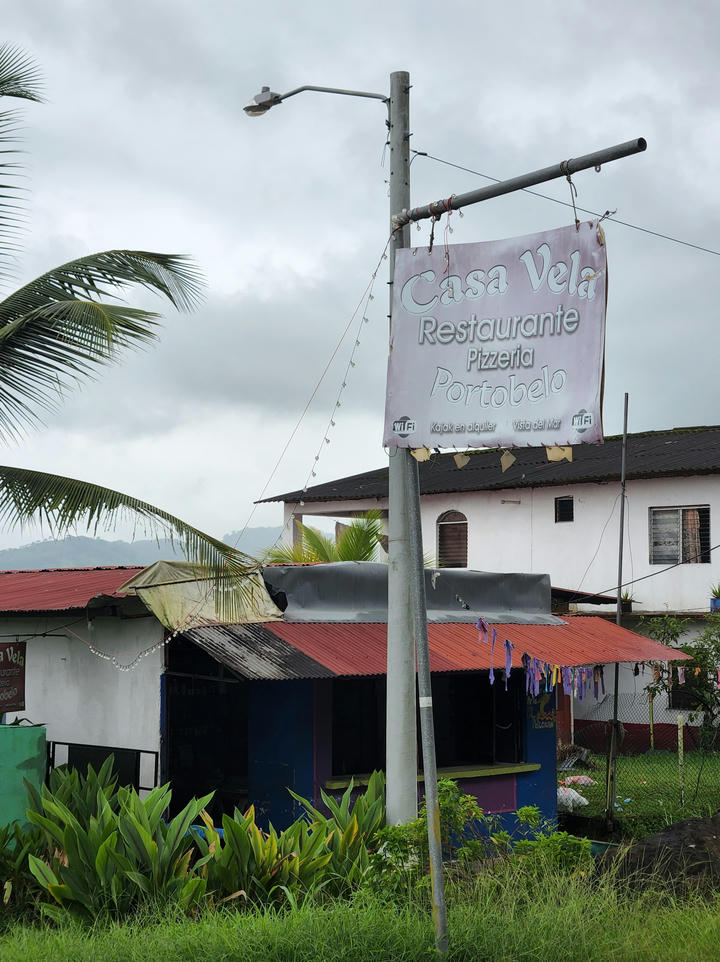
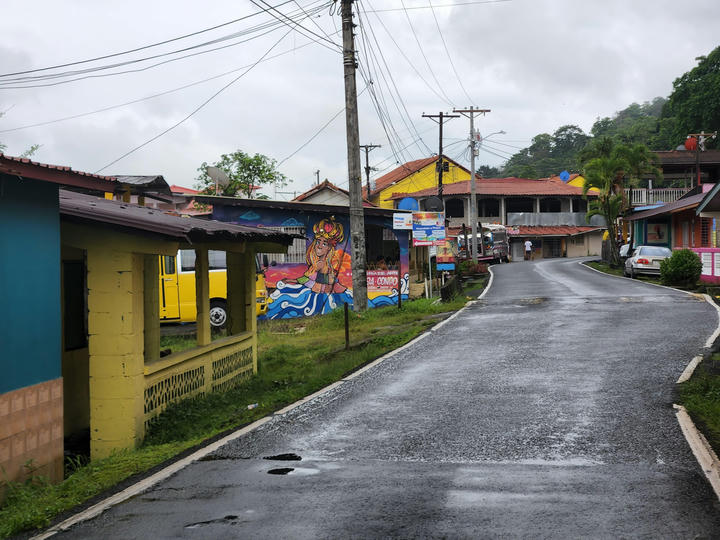
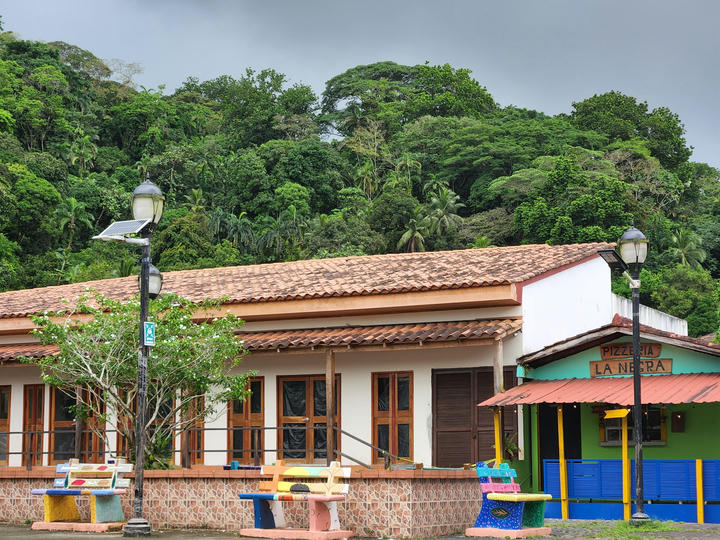
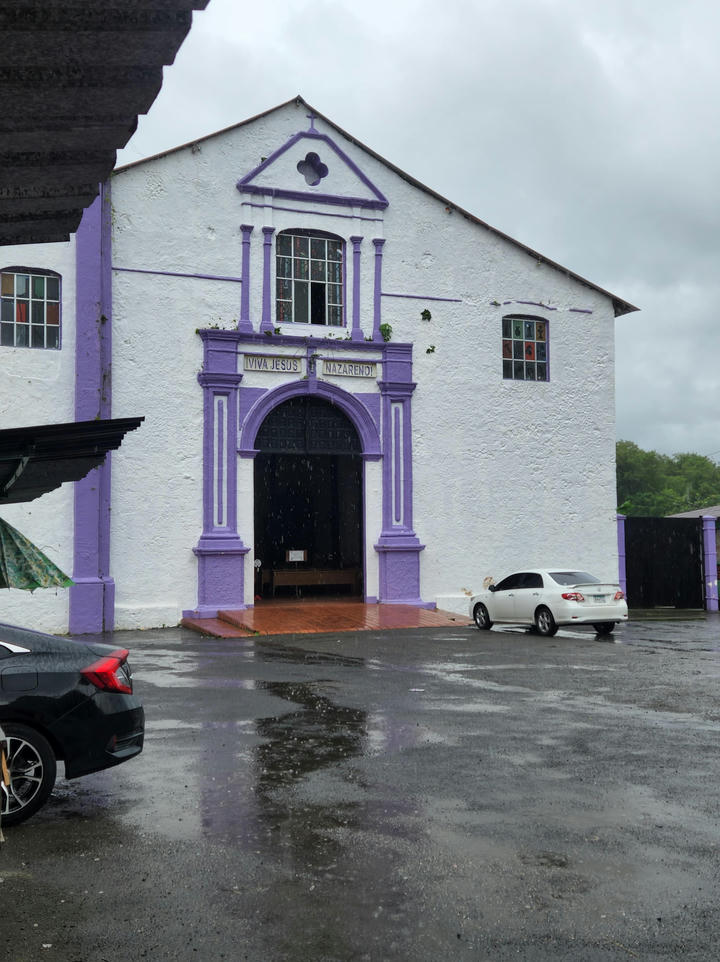
Once back, we picked up our full propane tank from the Puerto Lindo equivalent of Casa Vela, Casa X, run by a Dutch this time and then visited our friend Marcel for a goodbye beer and give him a hand with his numerical charts and new phone. That long day and our long stay ended on a plate of spaghetti Bolognese out of the big pot we had prepared for our first long sailing trip in a while the next day. One thing was for sure, we would probably not feel good enough to cook in the galley under way...
